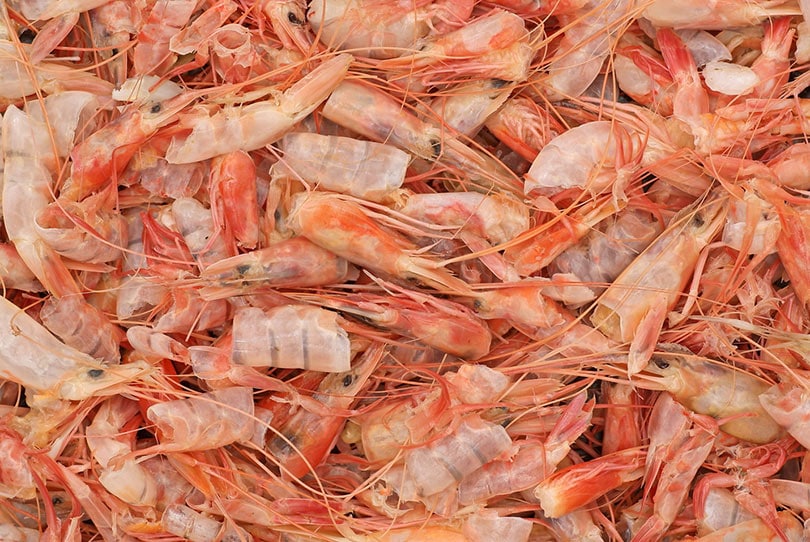Can You Compost Shrimp Shells? Important Facts
-
Pete Ortiz
- Last updated:

Anyone who eats a shrimp and maintains a compost pile will inevitably ask whether or not shrimp shells can be composted. Shrimp creates a lot of shell waste, and eggshells can be composted, so why not shrimp shells?
For all you composting seafood lovers out there, the answer is yes, shrimp shells can be composted. However, since they are animal byproducts and not plant products, composting them comes with a few extra steps to ensure quality and success. With a little bit of extra work and some tips, you can absolutely compost as many shrimp shells as you can eat. Just don’t expect to toss them outside with your banana peels and call it a day.
The Best Way To Compost Shrimp Shells
Shrimp shells can be composted, but you do not want to simply throw them onto the top of your compost pile. The best way to compost shrimp shells is to embed them into a healthy compost pile. Some recommendations say to put the shells as deep as ten inches into the heart of the compost pile. You should embed your shrimp shells for three reasons:
- First, shrimp shells are made from chitin which is a hard material that makes up certain exoskeletons in the wild. Chitin does not break down easily. It takes a lot of energy and time to break this tough material down. If you simply toss the shells into an exposed area, they will take an extremely long time to decompose.
- Second, shrimp shells stink. It does not take long for shrimp to start smelling. You do not want to cause your compost pile to start stinking because it will start to attract pests and make managing it unpleasant. Embedding the shells into the pile helps cut down on odors.
- Lastly, shrimp shells attract and produce extremely helpful bacteria when they break down. If you let them break down on top of your compost pile, the rest of your compost won’t benefit from the special bacteria that eat the chitin. Having the shells inside the pile ensures that this bacteria can spread to other parts of your compost, which can help increase the overall health of the pile.
Ways To Avoid Shrimp Odor in Your Compost
One of the biggest concerns regarding shrimp and compost is the potential for odor. Decomposing shrimp smells awful, and the odor can quickly become pervasive and hard to manage. In some cases, the shells will start to smell before you even have a chance to bring them out to the compost pile. Here are some pro tips to mitigate shrimp shell smells in your compost.
1. Boil The Shells
Boiling the shells will get rid of the odor and retain its neutral scent for longer. If you are already boiling the shrimp to eat, keep the water close at hand and then boil the shells afterward. Strain the shells out and dry them. They should smell less than previously and give you more time to get them to the compost pile before they start to stink up your kitchen.
2. Bake and Grind The Shells
Similarly to boiling the shells, you can also bake them. Baking the old shrimp shells will also cut down on the odor. After the shells are baked, they will be dry and brittle. In this state, the shells can easily be ground up using a food processor or mortar and pestle. The resulting powder can be easily added to your compost pile without the terrible odor that usually accompanies the shrimp shells.
A Reminder About Animal Compost
Shrimp shells are an exception to the rule about avoiding animal parts for compost. They’re similar to eggshells in that they’re technically animal byproducts that can be composted. However, try to remember that most animal byproducts cannot be composted. It’s still advisable to avoid almost anything animal-related when it comes to your home compost pile.
While shrimp shells can be composted, they are not the easiest or most desirable thing to compost. It can be easy to forget to avoid most animal products as you are shoveling shrimp shells into your compost pile. Please continue to stick to the general rule of avoiding most animal products other than shrimp shells and eggshells.
Final Thoughts
Shrimp shells can be composted, but you have to take steps to mitigate the smell and make sure that the shells break down effectively. If you are willing to embed the shells and also possibly bake or boil them beforehand, you can have a great additive that can benefit any compost pile. Shrimp shells have some great benefits for composters if you are willing to put in the work.
Featured Image Credit: Eldred Lim, Shutterstock
Contents



